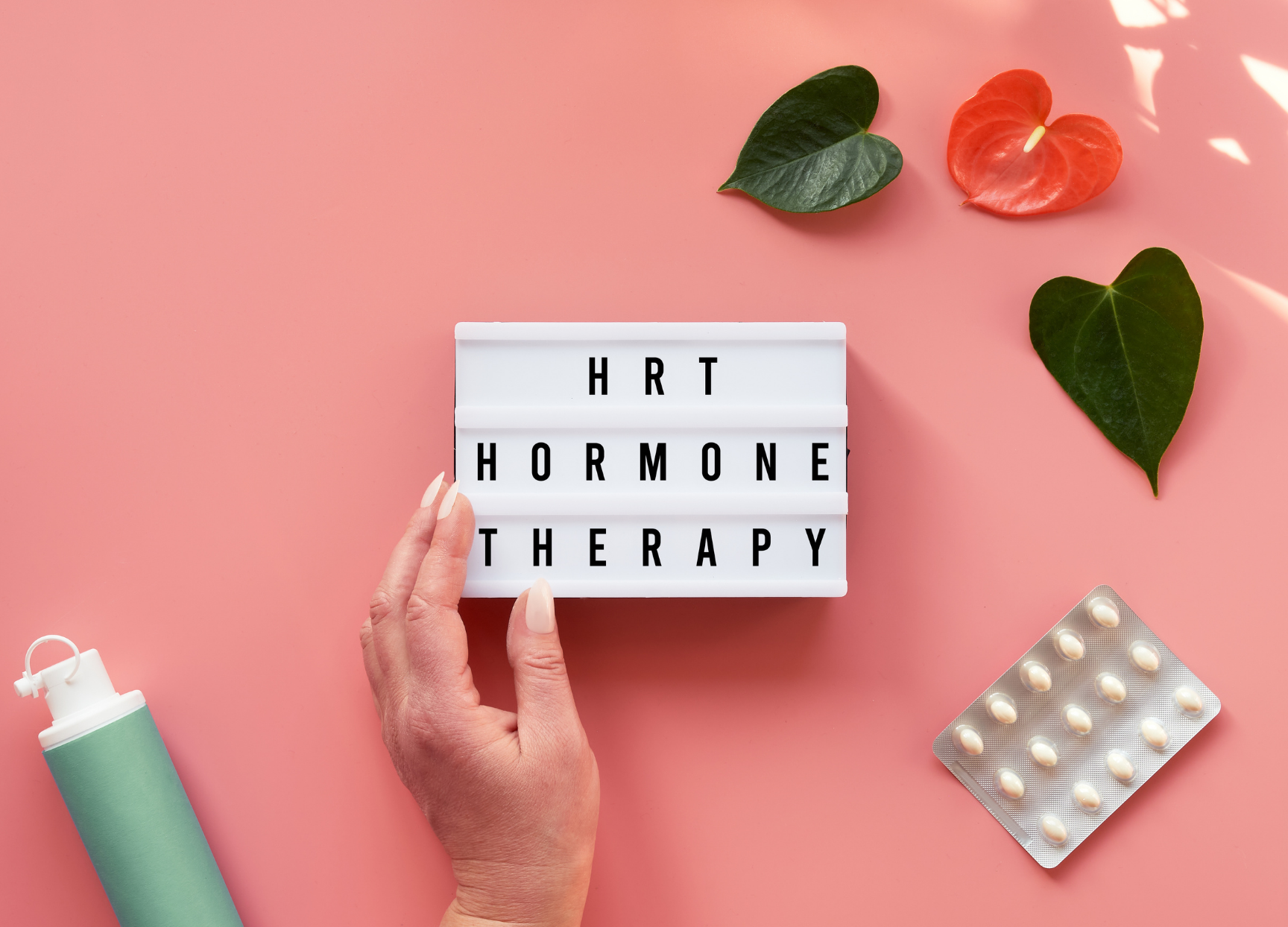Ms Claudine Domoney
Consultant Obstetrician & Gynaecologist
Specialist expertise: Colposcopy, General Gynaecology, Urogynecology, Obstetrics, Menopause.
Hormone replacement therapy, or HRT, is commonly used in the clinical treatment of menopausal symptoms.

Hormone replacement therapy, more commonly known as HRT, is a type of treatment used to reduce symptoms of menopause. HRT medication contains the hormones oestrogen and progesterone (and sometimes testosterone), to replace levels that naturally start to drop during menopause.
During menopause, female hormone levels drop, causing an array of symptoms including hot flushes, night sweats, brain fog, sleep issues, mood swings, anxiety and low mood, vaginal dryness, poor concentration, low libido and more.
Taking HRT medications can help rebalance hormone levels, alleviating these symptoms. It has also been proven to help prevent bone loss and reduce the risk of fractures in postmenopausal women.
There are a number of types of HRT, offering different hormones (oestrogen, progesterone, testosterone) and various ways to take or use it. HRT can come in the form of tablets, patches, gels, sprays, pessaries, creams or vaginal rings.
The type that will work best for you depends on your symptoms and your body, if you’ve had a hysterectomy, the stage of menopause you’ve reached and your personal preferences. It can often take a few attempts working with your specialist to find the right type of HRT for you.
Before starting HRT, it’s important to talk to your consultant about all of the options available to you and to weigh up the pros and cons of each type of treatment in relation to your specific case.
At your initial consultation, your specialist will ask you about your symptoms, how long you’ve experienced them, your medical history and how you’re hoping HRT will help. They will also give you the opportunity to ask any questions you may have. Things you may want to ask your consultant include:
What difference should HRT make to my symptoms?
How long will it take to notice the effects of HRT?
What are the benefits and risks of my recommended treatment?
Is there anything else I can do to alleviate my symptoms?
How will I know if the type of HRT I’m on is right for me?
In most cases, you will start HRT on a low dose which may be increased in the future. Symptoms should start to improve within just a few days of starting treatment. If you don’t see any improvement in your symptoms or experience side effects your consultant may decide to change your dose or the type of HRT you’re on. In most cases, you will need to take HRT for 2 to 5 years, at which point you will be post-menopausal and no longer experience symptoms.
Like any medication, HRT can have some side effects. If you do experience side effects, they are usually mild and will pass within the first three months of treatment.
While there is evidence to suggest that certain types of HRT can increase your risk of heart disease, stroke, blood clots and breast cancer, research also suggests that the level of risk varies depending on the individual's age and health history as well as the type of hormone therapy they are given.
Your consultant will consider your personal risk when recommending HRT to you and will discuss your personal risk with you. In most cases, the benefits of HRT outweigh the associated risks.
We have brought together a group of leading gynaecologists and breast specialists to form our Women’s Health team. With over 200 years of combined experience, these expert clinicians are the best in their field and are all focused on delivering the very best patient care.